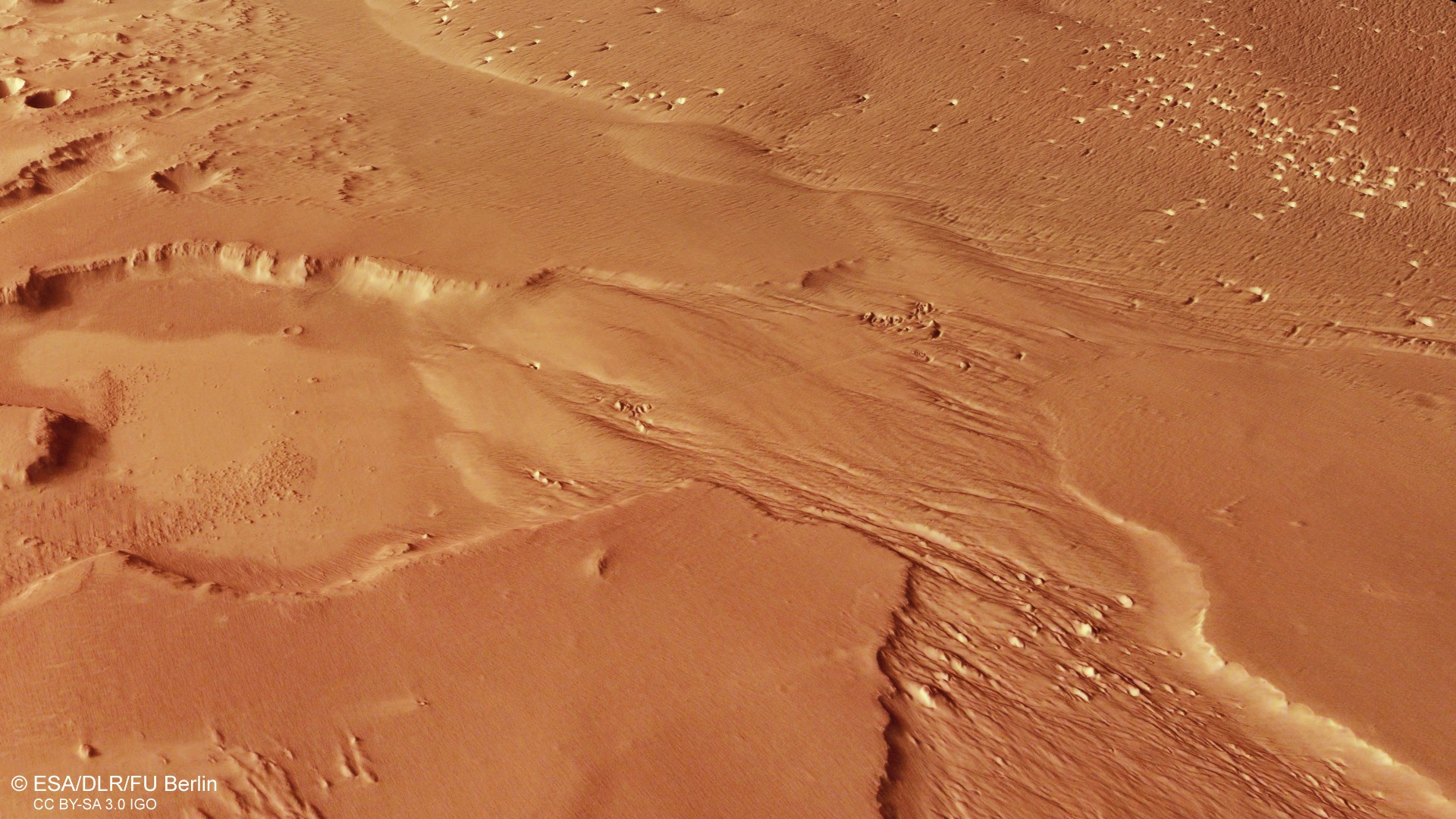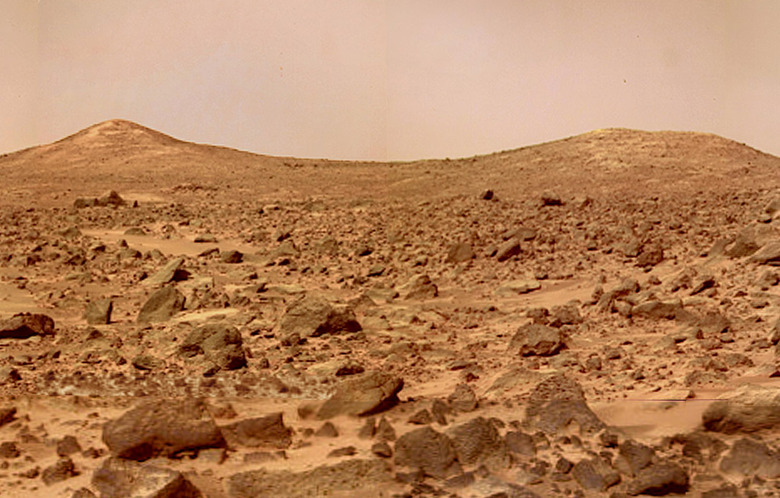ESA Finds Martian Water Reservoir That's Two-Miles Deep
The European Space Agency's (ESA) spacecraft, the Mars Express, has located a Martian water reservoir that is almost two miles deep. The reservoir is made up of water ice, which, if melted, could cover the entire planet in a layer of water 1.5 to 2.7 meters deep, the ESA estimates.
This reservoir is the most ice ever found in the equatorial area of Mars, the ESA says, and future studies of the surface of the Red Planet, as well as the area where these reservoirs are, could help provide more insight into Mars's history including how the planet came to be so dusty and sandy despite astronomers theorizing that it was once a paradise.
The particular region where the water reservoir was found is known as the Medusae Fossae Formation or MFF. This location is along the Martian equator and consists of several wind-swept features that can measure up to hundreds of kilometers across, the ESA explains in its report.

These features, in fact, are probably the biggest source of dust on the Martian surface, and as such, they have some of the most extensive deposits that researchers have managed to spot so far while studying the Red Planet.
While initial observations of these deposits left researchers baffled, by studying things further, the astronomers working with the Mars Express team were able to determine that they are likely made of water ice, thus making this one of the largest water reservoirs that we've ever found on Mars.
Further, the discovery of such water also helps to highlight that it is likely that Mars was once covered in oceans and rivers, which scientists have theorized for decades as rovers like Curiosity and Perseverance continue to explore mineral-rich locations on the Martian surface.
Unfortunately, determining just how dense the Martian water ice reservoirs are will have to wait, as the data gleaned from the Mars Express cannot tell us everything we need to know about it. Perhaps a future manned mission to Mars could help us learn more.
